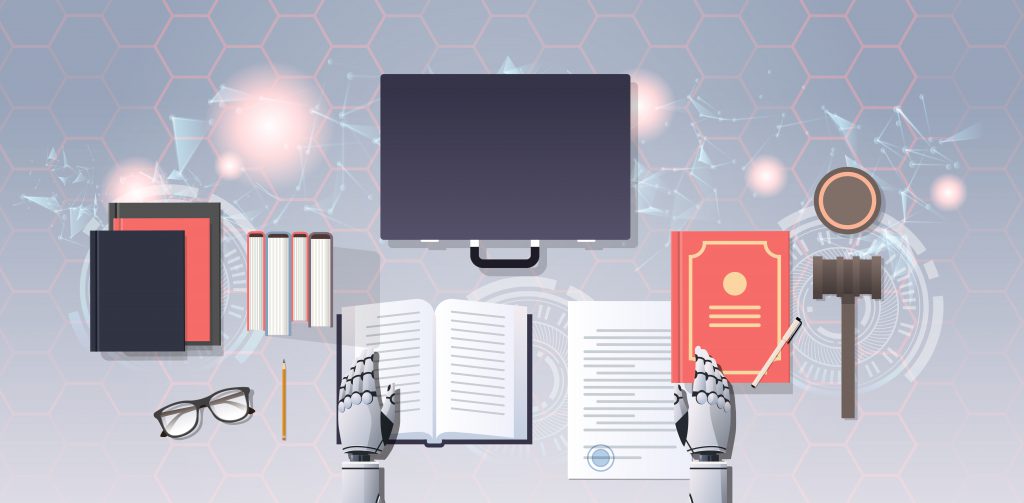6 Technologies To Improve Your Law Practice
Like many other professions today, the legal practice has increasingly become competitive as the number of lawyers and firms increases. All this healthy competition means you need to seek innovative ways to run your firm more efficiently and put you ahead of the competition. For that, you need to have the right technology to enable you to keep up with the digital trends and changes in litigation and the law. The legacy software you’ve been using just doesn’t cut it anymore.

Technology has advanced and is making processes more automated and manageable, giving you more time for your clients, research, and staying ahead of the pack. In this article, you’ll see five technologies that can significantly help improve the efficiency of your law practice.
1. Communication Tools
Video conferencing and other communication tools allow you to attend to clients who want to enlist your services but live far from your office. This is an effective way of solving commute time and expenses every time you need to meet. For instance, if a client in Amarillo looking for personal injury attorneys in Houston finds your firm, no one needs to travel across the state to meet the other. You can meet them via video conferencing together with your associates and with their witnesses.
Both you and your client will save a lot of travel, accommodation, and other expenses while still meeting their needs. They’ll only need to travel for court appearances but not for consultative meetings and such. In addition, these conference calls can be recorded for future use, reference and clarification. But the most critical resource you save for you and the client is time.
2. Digital Case Management
Developers have created digital business management systems that meet the needs of law firms. The software automates case management processes and procedures such as managing case documents, marking and scheduling essential dates, organizing contact lists, and billing management. The software also stores all this information and any relevant information in a centralized database for ease of access.
Digitally managing cases provides an accessible channel to share documents with your partners and associates. Because these platforms are web based, anyone with authorized access can utilize them from wherever they are and on multiple devices.
3. eDiscovery Tools
When preparing for a case, think about the amount of time you use going through a mountain of documents looking for relevant evidence, jurisprudence, and case law. Most of these documents come in digital format, but those still in physical form, you can also digitize paperwork for easy storage and access. That means documents in the form of papers, emails, digital photos, archived databases, or connected devices could now be accessed anytime, anywhere.
You can make the discovery task simpler for your team, which takes a considerable amount of time and resources to prepare. With eDiscovery software, the process is accelerated by using software analytics that gather and organize information. You can set the software to search phrases and keywords relevant to the case, streamlining the entire process for you.
4. Cloud-Based Management Applications
One thing common among all lawyers is paperwork. You have to collect evidence, record statements, and document the whole process at the same time. However, this mountain of paperwork can make it difficult to access the essential files you’ll need for a case. This is where cloud management services come in—you can access all the content you need for your work at any time and from anywhere.
Cloud-based legal software can significantly impact your firm’s efficiency for you and your employees. Such software was designed to make data access easy and boost productivity in all departments of your practice. Current statistics show that 94% of workloads are run on cloud, with 48% of enterprises storing classified data on cloud-based storage.
5. Template Management System
Every law firm needs standardized document processing, and that’s why you need automated templates. The template management system ensures all your firm’s templates are consistent. It enables you to sort them out and organize them through your firm’s areas of practice and so on. In using new templates each time instead of reusing old ones, errors and inconsistencies are significantly reduced, resulting in more accurate results.
6. Chatbots
There are times a client wants to interact with you when you’re off office hours (though as a lawyer that’s very rare), and they expect you to help them right there and then. If they feel like you’re not meeting their needs and demands, they can go to your competitors. By using chatbots within your website’s messaging channel or other messaging services you use, you can get to back to them during business hours and answer any challenging questions your clients may have.
Legal Practice Technology
It’s time law firms do away with traditional legal software and embrace more advanced solutions. However, it’s important to remember that there are cybersecurity risks from which you’ll need to safeguard your practice, as you move toward the digital space. While you take steps to adopt these technologies, you should also bolster your cybersecurity practices and measures. Otherwise, technology can elevate your practice to new levels by breaking communication barriers, reducing the physical workload and costs, and ensuring efficiency and consistency in your practice.
About Author:
Howard Ayes is a tech legal writer and blogger with over 15 years of experience writing educative blogs and guest posts for different publishers. He loves animals and takes on house remodeling projects in his free time.
Try our Debt Resolution solutions today Request a Demo